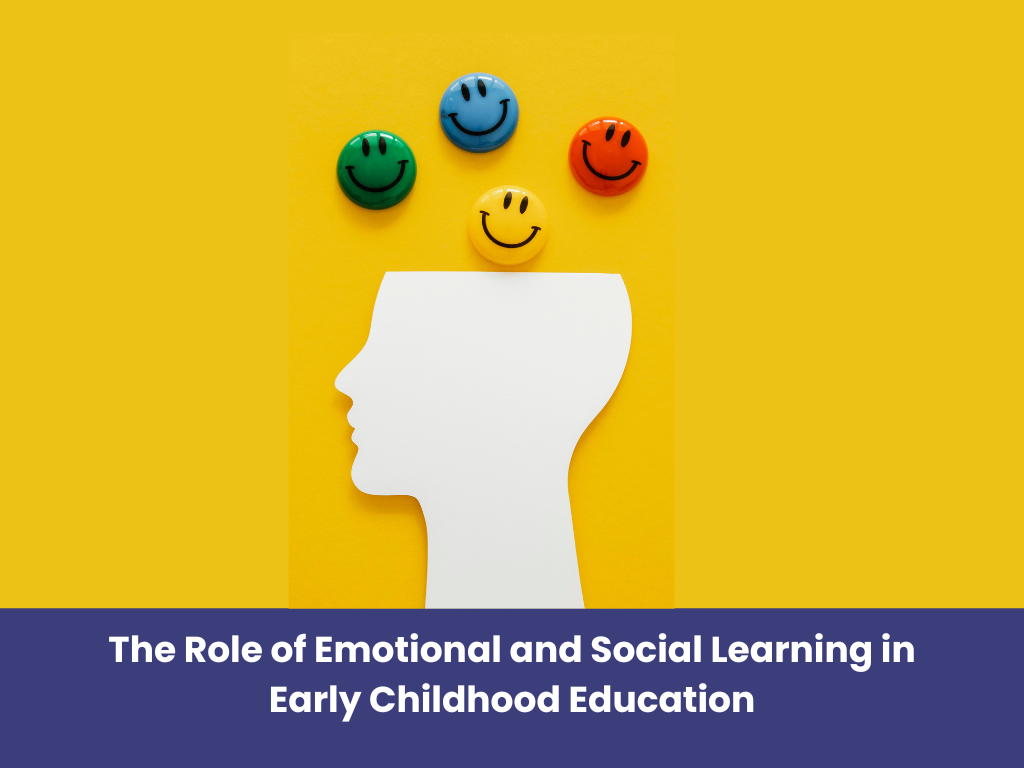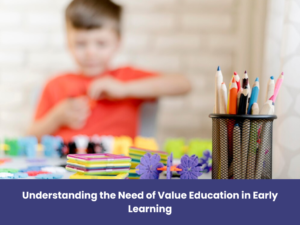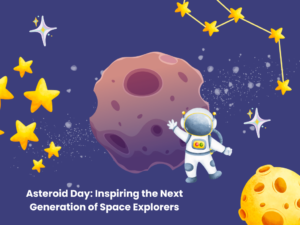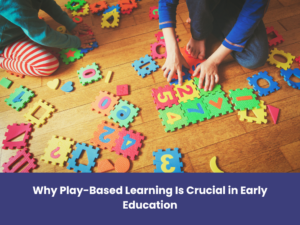In the dynamic landscape of education, emotional and social learning (SEL) has emerged as a fundamental aspect of early childhood development, deserving of equal attention alongside traditional academic instruction. SEL focuses on the holistic development of young learners, equipping them with the essential skills to understand and manage their emotions, empathize with others, establish positive relationships, and navigate social complexities. In this article, we at The Navyandhra Play School regarded as one of the leading Daycare in Gurugram shall delve into the multifaceted role of emotional and social learning in early childhood education, illustrating its critical importance in shaping well-rounded, emotionally intelligent individuals.
Unpacking Emotional and Social Learning
At its core, emotional and social learning is about cultivating a suite of skills that are crucial for personal, academic, and professional success. The Collaborative for Academic, Social, and Emotional Learning (CASEL) identifies five core competencies central to SEL:
-
Self-awareness: This involves recognizing one’s emotions, thoughts, and values and understanding their influence on behavior. It’s about understanding one’s strengths and limitations with a well-grounded sense of confidence and optimism.
-
Self-management: This pertains to effectively managing stress, controlling impulses, and motivating oneself. It encompasses setting and working toward personal and academic goals.
-
Social awareness: This competency involves showing empathy and understanding towards others from diverse backgrounds and cultures, recognizing social norms for behavior, and understanding family, school, and community resources and supports.
-
Relationship skills: This area focuses on establishing and maintaining healthy and rewarding relationships based on cooperation, resisting inappropriate social pressure, preventing, managing, and resolving interpersonal conflicts, and seeking help when needed.
-
Responsible decision-making: This involves making ethical, constructive choices about personal and social behavior based on considerations of ethical standards, safety concerns, social norms, the realistic evaluation of consequences of various actions, and the well-being of self and others.
The Critical Importance of SEL in Early Childhood
The early years are a critical period for the development of foundational emotional and social competencies. Children who receive a strong foundation in SEL can navigate life’s challenges more effectively, exhibit higher self-esteem, and achieve greater academic success. Here’s a deeper look at why SEL is indispensable in early education:
-
Foundation for Lifelong Success: SEL lays the groundwork for children to become adaptable, emotionally resilient adults capable of facing life’s challenges with confidence.
-
Promotes Academic Achievement: Emotional and social competence is linked to academic success. SEL not only supports cognitive learning by enhancing attention and motivation but also reduces behavioral problems, leading to a more conducive learning environment.
-
Enhances Emotional Intelligence: SEL programs teach children how to identify and manage their own emotions and recognize those of others, fostering empathy and social skills.
-
Prevents Negative Outcomes: Effective SEL can reduce the risk of mental health issues, substance abuse, and other negative social outcomes by providing children with healthier coping mechanisms.
-
Cultivates a Supportive Learning Environment: By teaching children how to interact positively with peers and resolve conflicts amicably, SEL contributes to a safe and positive learning environment, benefiting all students.
Strategies for Implementing SEL
Integrating SEL into early childhood education requires thoughtful and deliberate strategies. These can range from structured curriculums to informal daily activities. Here are some approaches to effectively implement SEL:
-
Embed SEL in Daily Activities: Incorporate SEL practices in everyday classroom interactions and routines. This can be through circle time discussions, cooperative games, or through modeling and reinforcing positive behaviors.
-
Create an Inclusive Classroom Culture: Develop a classroom environment that celebrates diversity, encourages empathy, and fosters a sense of belonging. This involves integrating books, materials, and activities that reflect diverse cultures and perspectives.
-
Use Technology and Media Wisely: Leverage educational technology and media that promote SEL skills. Interactive games and stories can be powerful tools in teaching empathy, problem-solving, and collaboration.
-
Engage Families and Communities: Extend SEL beyond the classroom by involving families and the wider community. Providing resources and opportunities for parents to learn about SEL and participate in related activities can reinforce learning at home.
-
Professional Development for Educators: Equip educators with the training and resources they need to effectively teach and model SEL skills. Ongoing professional development should include strategies for integrating SEL into academic content and managing their own emotional well-being.
The Future Outlook on SEL
As the body of research supporting the benefits of emotional and social learning continues to grow, educational systems worldwide are increasingly incorporating SEL into their curriculums. The future of SEL lies in its integration into all aspects of education, from policy and curriculum design to teacher training and community involvement. By prioritizing emotional and social development alongside academic learning, we at The Navyandhra Play School, one of the leading Kindergarten in Gurugram pave the way for a generation of emotionally intelligent, socially responsible, and resilient individuals.
In sum, the role of emotional and social learning in early childhood education cannot be overstated. It is a critical component of a holistic approach to education that prepares children not just for academic success but for life. As educators, parents, and policymakers, our commitment to fostering these essential skills in our youngest learners is a testament to our belief in their potential to change the world for the better. Through continued effort and innovation in SEL, we ensure a brighter, more compassionate future for all.




